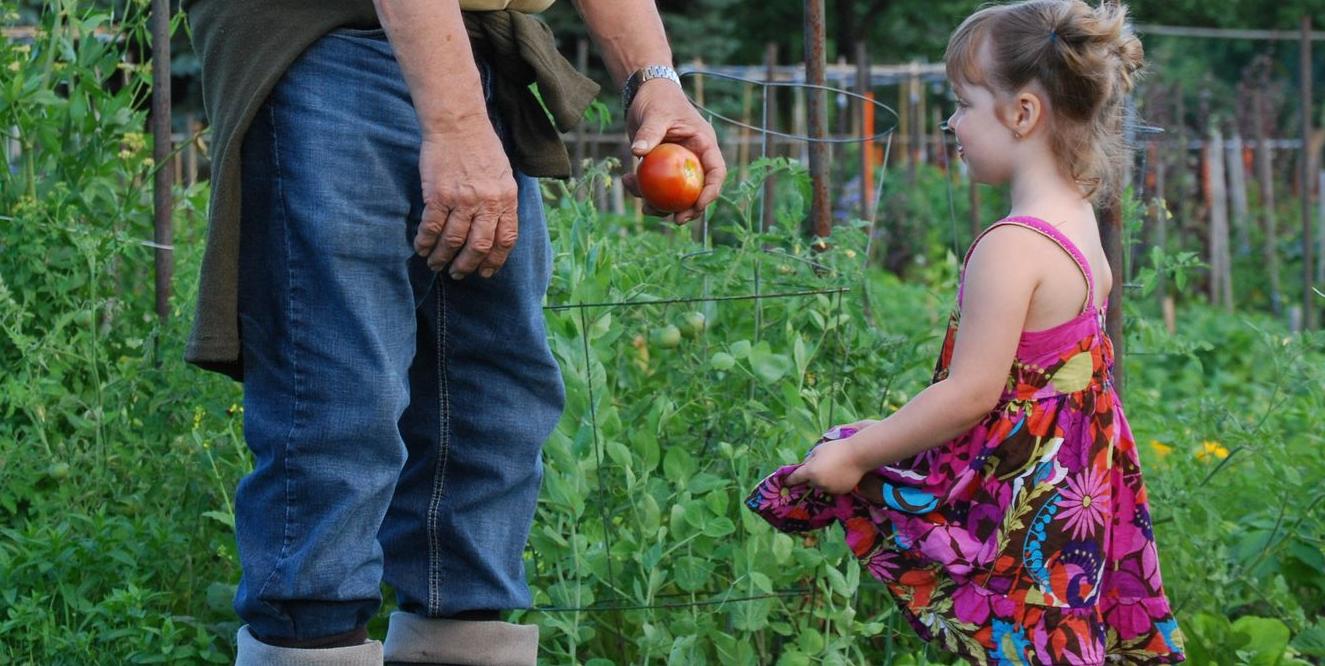Some events are so fortuitous that we sometimes wonder if chance is playing on us.
The history of cultivated fruits and vegetables is so intrinsically linked to the history of people that sometimes one cannot be separated from the other. For a long time, I cultivated a community garden in the heart of Montreal. On a neighboring plot, a gentleman of a certain age came to plant tomatoes, beans and other vegetables of surprising vigor, and which grew so high that many people envied him.
Every time he went to his garden, he would pass mine, greeting me as he passed. He didn't hesitate to take my 3-year-old daughter's hand and lead her into his garden to make her pick cherry tomatoes, much to her delight. He wasn't from here, you could tell by the accent, but it was only one very hot evening, when the gardens were closing, that he stopped in front of mine and started to talk to me. For no reason at all, maybe the nostalgia that night was stronger than usual..
Over there, in my country, I had a big garden. Big garden, lots of tomatoes! My father, ah, my father many large lands. Trees, vegetables, fruit, lots of it! Beans that go very, very high!
He was born in Romania, somewhere between the 1930s and 1940s (I never found out his exact age). His face weathered by the sun always smiles, and his bearing expresses a tireless worker and... He was the son of a rich peasant, whose lands extended between the Danube and the mountains. His father farmed several hectares of fruit trees: there were peach trees, apple trees, and several other trees whose names I did not understand... Several workers worked there and the estate was prosperous. His childhood as a farmer's child was punctuated by days fishing in a river so clear that one could drink from it without worry, swimming and children's games, as well as odd jobs on the farm. Taking care of the chickens, the picking, the animals...
Where everything changed...
On the day of the coup, everything changed. The man tells me, in words half his language and half French, the story of his family. But I understand more half-heartedly with the expression on his face what the coming to power of the Romanian Communist Party must have been.
Overnight, the wealthier social classes became stigmatized. It was no longer good to be rich, to own property or land. And one day, the prefect of the town knocked on his door. The man knew everything was going to change.
The prefect, with the new authority of communism, decided to expel the family from their family land and hand it over to the community. And this is how the trees were razed, the gardens left abandoned and the land repatriated(1)
He and his brothers and sister attended school, which was not the prerogative of everyone at that time. He dreamed of becoming an engineer. But when he was about to enter engineering university, he had to go to the prefect to authorize him to attend the school. He wrote in the file, on the fifth page: Son of a bourgeois peasant. It was final, like a condemnation. The university could not accept such a student. The director then told him:
Go work in the mines, and when you have demonstrated real effort, we can review your application.
This is how he was sent to the mines for 3 years, which we know today to be forced labor. His superior, one day noticing his intelligence and his caligraphic talents, brought him to his office and gave him an assistant task. The years passed, and at the end of the contract, he returned to university. In the meantime, compulsory service in the army had come into force, and he was sent back... to the mines!
The fall of communism
Several years passed. When communism fell, certain lands were given back to still living peasants. His mother therefore returned to the lands of his childhood and called him back. He found a river so polluted that the stones at the bottom could no longer be seen. Everything had changed, time had done its work. The varieties that grew there no longer existed, they had disappeared with the rest.
He decided to immigrate here, with his know-how as his only suitcase. But in this suitcase... beans! The beans that his family and community had grown from generation to generation. A bean that was now growing in his little Montreal garden. A bean that reminded him of his mother, his sisters, his brothers and his violated lands somewhere near the Danube.... And that he called Fidelutza (note that I write this name according to the pronunciation that I understood of it ).
My daughter runs towards me, and in her hands, beautiful swarthy brown seeds of the family bean. He looks at me and waves at me.
Years later
The years passed, and my garden was no longer enough for my overflowing passion. I decided it was time for me to quit my job and step into the unknown. The first year I founded Terre Promise, the fidelutza bean proudly rose to the sky on stakes more than six feet high in the middle of the grounds of Ïle Bizard. Its pods are flat, yellow, and it was through contact with an Italian friend that I learned to appreciate these beans cut into cubes and fried in butter.
Every year, my bean collection grows, it now includes around a hundred varieties. Sometimes I have to make choices and I have to eliminate certain varieties... but this one I keep carefully.
One day, a lady looked at my seed displays in a market and exclaimed:
Ah, it's my country's bean!
I look at what she is pointing at. The Fidelutza bean was also part of its heritage. She looked like a child who had just found treasure. Of course she was Romanian. Out of curiosity, I then asked him the meaning of the word Fidelutza. In hesitant French, she looks at me and says:
It's not well written, but, it means bean!
History plays on us a little sometimes...
Take note that the Romanian translation of bean is Faseolea. Not having understood the old man very well, I named the bean as best I could according to the pronunciation, at a time when Google translate didn't really exist. I would like to apologize to the Romanian nation for the incorrect spelling.
(1)This action is called violation of property rights. It was carried out through widespread nationalization without compensation and a systematic confiscation of the properties of citizens considered "enemies of the socialist order" (socialist dușmani ai orânduirii), either because of their past activity, or simply because of their origin. social so-called “bourgeoise-latifundiaire» (clasa burghezo-moșierească) of their ancestors.

